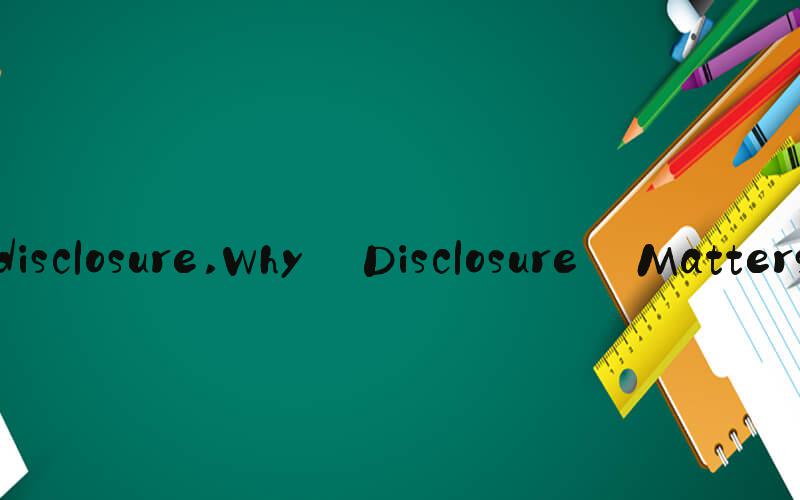
Disclosing Secrets: Understanding the Importance of Disclosure
Disclosure, in simple terms, refers to the act of sharing information or revealing secrets that may have been previously unknown. It can be in the form of a confession, a declaration, or even a written statement. While we may associate disclosure with negative experiences such as scandals or mishandling of information, it is an essential aspect of ethical and responsible behavior.
Why Disclosure Matters:
The disclosure of information plays an integral role in building trust and fostering transparency in various settings. Whether in personal relationships, business transactions, or political campaigns, honesty and authenticity are the foundations upon which trust is built. By disclosing relevant information, we demonstrate our willingness to be open and accountable for our actions, which can help us avoid misunderstandings and conflicts in the future.
Moreover, disclosure is often necessary to prevent fraudulent behavior or misconduct. In the business world, companies are required to disclose financial information to investors and stakeholders to ensure transparency and prevent fraudulent activities. In healthcare, doctors and medical professionals are bound by ethical codes to disclose medical information to patients, ensuring informed decision-making and providing quality care.
Challenges Associated with Disclosure:
While disclosure is crucial for ethical and honest behavior, it can present challenges. Individuals and organizations may be hesitant to share information for fear of negative consequences, such as reputational damage or legal liabilities. Therefore, there is often a fine line between what information is necessary to disclose and what can be kept confidential.
In some cases, disclosing information may also have unintended consequences. For example, disclosing personal information about oneself, such as mental health issues or past traumas, can lead to stigmatization or discrimination. Additionally, in disclosing sensitive information in legal or criminal investigations, there is a risk of retaliation from those involved.
How to Approach Disclosure:
To ensure responsible and ethical disclosure, it is essential to have clear guidelines and frameworks. Organizations should have policies in place that outline what information should be disclosed and to whom. For example, in the healthcare industry, there are strict regulations surrounding the disclosure of medical information. Similarly, companies should adhere to financial reporting requirements and provide transparency in their operations.
Individuals, too, must approach disclosure thoughtfully. Before sharing personal information or secrets, it is important to consider the potential consequences and weigh the benefits and risks. In some cases, seeking advice from trusted sources, such as a lawyer or therapist, may be beneficial in determining the best course of action.
The Benefits of Disclosure:
Despite the challenges associated with disclosure, there are benefits to sharing information openly and honestly. When we disclose relevant information, we can build deeper connections and relationships based on trust and authenticity. In business and professional settings, transparency can foster better communication and collaboration, leading to improved efficiency and outcomes.
In healthcare, disclosure of medical information can lead to better patient outcomes, as patients are empowered to make informed decisions about their care. Similarly, in legal and criminal investigations, disclosure of relevant information can lead to better outcomes for all parties involved.
Conclusion:
Disclosure is an essential aspect of ethical and responsible behavior. While it can be challenging and even risky at times, honesty and authenticity provide the foundation for trust and transparency in personal and professional settings. Therefore, individuals and organizations must approach disclosure with thoughtfulness and care, while also recognizing the benefits that come with openness and transparency.

